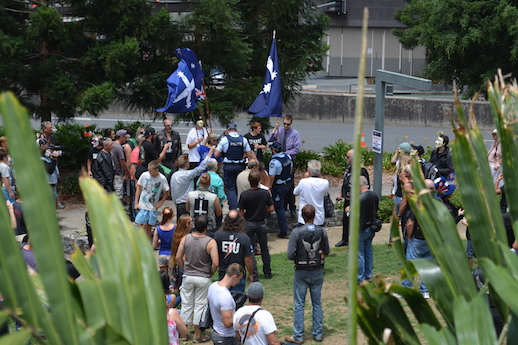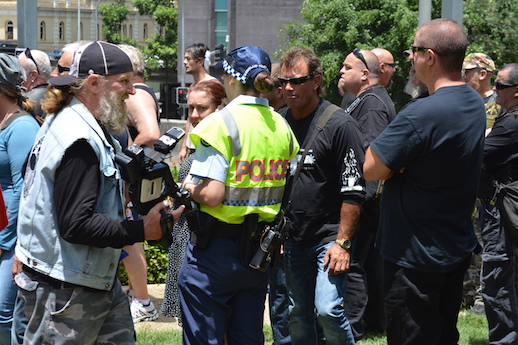As the deadline approaches at the end of next month for the long-awaited review of Queensland’s consorting laws, or so-called anti-bikie laws, a former detective has shown they are not having the desired effect on organised crime.
Queensland Police are asking the government review for the current Vicious Lawless Associates Disestablishment (VLAD) laws to remain in place, claiming they have been successful in reducing organised crime and “bikie” numbers.
However, Terry Goldsworthy, a former Gold Coast detective and now Bond University criminology associate professor, says the Queensland VLAD laws of 2013 have actually increased some organised crime offences and the number of “bikie gang” members.
He says figures from the Queensland Police Department show drug trafficking offences in the state have doubled in the time since the VLAD laws have been imposed.
He also points out in an article in The Conversation that the number of “bikie gang” members has increased by 34% since 2012 to about 6000 across the nation.
So far, only one person has been successfully convicted under the VLAD laws and he was not a member of an outlawed motorcycle club or had anything to do with motorcycles. Meanwhile, 2573 offenders have been arrested on 8582 charges with no convictions and in many cases no police evidence offered.
LAZY POLICING
If it sounds like “lazy policing”, that is exactly what the Queensland Law Society predicted would be the outcome of the controversial VLAD laws:
Another risk is that the proposed law will lead to lazy policing, where mere criminal intelligence, as opposed to proper evidence, is required to bring criminal consequences upon citizens.
For the innocent motorcyclist, this could manifest itself as police harassment via discriminatory licence and vehicle checks.
Terry says the anti-consorting laws amount to “policing someone because of who they are, not on the basis of any criminal activity they may be doing. They aim to pre-empt any offences.”
So, in effect, if you socialise with, or look like, an archetypal bikie (whatever that is) you can expect to be treated like a criminal by the police.
Terry says similar anti-consorting laws have been in place in the Northern Territory since 2006, in NSW since 2012, and Victoria and South Australia since 2015.
Yet he points out that the NT and all states, except Tasmania, already had suitable serious crimes laws in place to help police tackle organised crime, but they had rarely been used.
“What Australia needs is informed debate, removed from the strident moral panic being propagated by the media and law enforcement agencies,” Terry says.
“We need to implement criminal justice policy from a strong evidence base with a view to establishing best practice. This is lacking in the current rush to embrace criminal association laws.”



